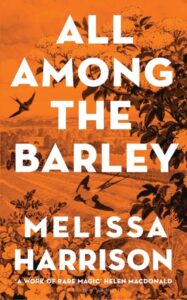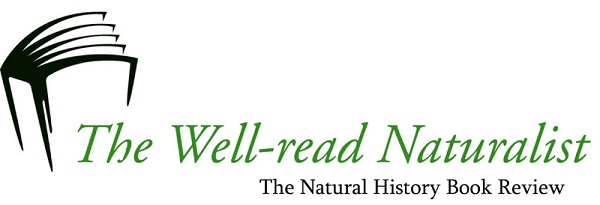Of all the problems facing the United States that I have, as an American, over the course of my life seen to be the most trouble-inspiring, are a profound misunderstanding of history and an over-abundance of nostalgia for the imagined past that this misunderstanding creates. An insufficient, and commonly over-simplified, initial education in our own history is made worse by a pervasive anti-intellectualism, coupled with a wide-spread preference for being entertained over being intellectually stimulated, has over the decades yielded a sizable portion of the population that takes more of what they “know” about American history from the oft-reinforced tropes of popular films and television programs than from carefully researched books and accredited historians.
Unfortunately, such popular cinematic productions as “Pale Rider” and “The Patriot,” as well as once long-running television series as “The Lone Ranger” and “Gunsmoke,” entertaining as they may be, present little more than absurdly masculine fictions about the American past, ones in which all important deeds were accomplished by lone, often brooding and psychologically damaged, gun-toting white men. Too many among us, both men and women, have adopted such nostalgic fantasies as their understanding of the nation’s history; “Oh for the good old days when men were men and women were women!” goes the tired refrain. Needless to say, adherents to such deeply ingrained inaccuracies get very upset when told that such was not the case – and they are disturbingly willing to follow anyone in authority who will pander to them, particularly in times of economic uncertainty and social change, by declaring that yes, it actually was – and it can be again.
Melissa Harrison’s captivating new novel All Among the Barley is not about America – it’s about rural England in the early 1930s – a nation suffering both the lingering social and psychological traumas of the First World War, the worsening effects of an international global economic depression, and still struggling to cope with revolutions in technology, trade, and civil society from the previous century. However to fourteen-year-old Edith Jane Mather, the novel’s narrator, and her family, all of these events cannot be perceived in any way beyond the direct effects they visit upon them and their neighbors. Life for the Mathers is lived both too close to the land and too close to the bone to allow for more far-reaching speculations.
Corn growers (“corn” in this sense being not the maize to which North American readers may apply the name but rather its older sense of cereal crops such as wheat and barley) for as long as they can remember, the Mathers still practice many of the old ways in their farming as well as their lives. Horses are still used in the fields (even though the Mathers possess a modern tractor that they’ve judged unsuitable for the terrain of their land), fields are still “opened” by hand with scythes, and bundles of harvested corn are still moved about with two-tined wooden forks. Witch-marks from long ago are still found on house-beams, folk remedies are still preferred over the attentions of expensive medical professionals, and age-old superstitions are still followed – albeit perhaps occasionally with a little embarrassment by some. Even people are still used in the old ways, the old yardman Doble, for example, being only the most recent Doble in a long line of Dobles to work on the Mather farm.
As would be expected, such a world as that inhabited by the Mathers is rigidly hierarchical. George Mather holds absolute authority over his family, employees, and the farm – often, as is not uncommon to the time, through intimidation and violence – just as the lord of the manner holds absolute authority over him and all the other local farming families. Women – other than spinsters and widows – do not engage in occupations outside their families. Everyone knows his or her place and acts accordingly, lest they incur the wrath of those above them and the suspicion of the community as a whole.
Yet times are changing. Ada Mather, Edith’s mother, now buys rather than makes the family’s own butter and cheese, and flour is bought rather than the family’s own wheat being ground locally for the purpose. Some local families have seen their generations-old farms fail. They have left, and so as well have left their homes – actually, those, like all such local things, belonging to the lord of the local manor, now generally absent and largely disinterested in them – to “return to the Earth;” others have been hobbled by the loss of those men who never returned from the Great War. Ms. Harrison shows with vivid clarity just how intricate the daily life of such rural farming villages is; remove just one person (or add one), change just one relationship or let anyone acquire ideas outside of their birth-ordained role, and things can go astonishingly awry.
Yet when all one has at hand to interpret the world are the stories one has been told (including, for Edith, the old books she first encountered in her just-completed school years; books no one else in her village seems to care much, if anything, about), and one’s own interpretations of any observations made, more-often-than-not richly mixed with such old stories, the psychological ground upon which one’s understanding of oneself stands often turns out to be not nearly so solid as the physical ground from which the corn grows.
Indeed, for Edith, now finished with school and facing a future that is personally uncertain, with expanding rings of uncertainty originating from both near and far yet colliding in unfamiliar and very uncomfortable ways all around her, interpreting the world – her world – is a most challenging activity. New discoveries can, of course, bring growth – but they can also bring confusion. Who she is, who each member of her family is, and who those from her past were, are questions for which highly conflicting answers are being discovered. To this then add an “outsider,” the charismatic, educated, and witty Constance FitzAllen, so full of life and having lived a life so filled with adventures… To a bookish fourteen-year-old girl facing the dreary life she sees already being unhappily lived by her mother and sister, a life in which even their very bodies are not their own, not to be thrown into a state of confusion and doubt would be entirely unreasonable.
Edith is more than a discrete character in this superbly-crafted tale; she is also its central and guiding spirt. Alternating between absolute confidence and blinding fear, she struggles to not so much come to terms with her world as to penetrate what she increasingly perceives as its illusions; to see through the murkiness and into the shadows that separate her from something larger. In the mind of a young girl such emotions are not uncommon, and indeed may even be romantically noble; yet in a group of people, or a larger society-as-a-whole, such confidence-laced-fear can produce entirely different results. All it sometimes takes is for the right “tinder” to be present – an insufficient and distorted understanding of the past, economic and social uncertainty about the present, a future filled with frightening and seemingly unavoidable changes – for combustion to take place.
There is much more that could be said, all of it filled with praise, about All Among the Barley, its characters, its carefully inter-twined stories; but as a crucial part of Ms. Harrison’s tale relies upon her superb talent for foreshadowing, suffice it to write that Edith, her family, and the world they once inhabited shall long remain in my memory, reminding me always to peer deeply into the shadows of the past lest they be allowed to obscure and distort the present.I dare not say more out of fear of ruining the experience for those who – it is sincerely hoped – will find something I’ve already written here to be sufficient motivation for picking up a copy and investigating its mysteries for themselves.
 Title: All Among the Barley
Title: All Among the Barley
Author: Melissa Harrison
Publisher: Bloomsbury
Imprint: Bloomsbury
Format: Hardback
Pages: 352 pp.
ISBN: 9781408897997
Published: August 2018
—
Publisher’s note:
While few novels are reviewed in The Well-read Naturalist, Melissa Harrison’s extensive work in natural history subjects, particularly her editing of the magnificent Seasons anthology quartet (Elliott & Thompson) and her meditative essay Rain; Four Walks in English Weather (Faber & Faber), strongly urged me to a reading of this, her third novel, for review. Her first novel, Clay (Bloomsbury), won the Portsmouth First Fiction award. Her second, At Hawthorn Time (Bloomsbury), was shortlisted for the Costa Novel of the Year award, long-listed for the Baileys Women’s Prize for Fiction, and long-listed for the Encore Award; it was a Book of the Year in The Telegraph. It will surprise me greatly if this present one does not far surpass even these critically acclaimed previous two in most well-deserved honors.
